
Walkies! Sheffield’s adventure cat goes on hikes and bike rides with owner
A dog-like adventurous cat has been enjoying hikes and bike rides with its owner - and will soon be going on camping trips too.
Kyle Kana'iaupuni Robertson, who lives in Meersbrook, got his cat Pōhaku in March last year.
Pō, as he calls his cat for short, is a Russian Blue Ragdoll and spends every day with his owner.
 Mr Robertson, 31, said: “I am not sure which one of us is more co-dependent, but he is always in the same room as me. I picked the roundest, fluffiest and cuddliest cat, but he is also quite dog-like. I didn’t teach him to play fetch but he taught me how to play fetch with him instead.”
Pōhaku’s name leads back to Mr Robertson’s Hawaiian roots and the word has a sacred connotation in the culture.
His adventures started small with lead-training in Mr Robertson’s garden and quickly evolved to walks in nearby Meersbrook park either on a lead or in a carrier backpack.
Mr Robertson, 31, said: “I am not sure which one of us is more co-dependent, but he is always in the same room as me. I picked the roundest, fluffiest and cuddliest cat, but he is also quite dog-like. I didn’t teach him to play fetch but he taught me how to play fetch with him instead.”
Pōhaku’s name leads back to Mr Robertson’s Hawaiian roots and the word has a sacred connotation in the culture.
His adventures started small with lead-training in Mr Robertson’s garden and quickly evolved to walks in nearby Meersbrook park either on a lead or in a carrier backpack.
The proud cat-dad said: “Pō was pretty brave to begin with and wanted to climb all the trees and I had to hold him back, since he would just climb up and not know how to get down. Then he just started to get a bit bored with that, because it's just a wide, open space. There's not much to look at. "But it wasn't until he finally climbed out of the backpack and got on my shoulder that I was like, ‘Oh, wow, we can actually kind of venture out a bit more’." The trips to the Peak District were carefully planned, so that Pōhaku could roam lead-free without any hazards nearby. Whenever any dogs or other potentially threatening things meet the adventure duo on their walks, Pōhaku finds refuge on his owner’s shoulder, where he sits like a parrot.
 When on walks, a lot of people still give the cat and his owner puzzled looks. He said: “A lot of people say that it seems so unnatural to take my cat on walks and ask if the cat actually takes to the lead, but show me a dog that didn’t need lead training?”
The process of finding what works for Pō required a lot of trial and error.
Mr Robertson said: “He's not very treat-driven, so that never worked. It was kind of just testing things out and just being quite vigilant and seeing if he was up for certain things, but I wouldn’t ever actually take him out of the bag unless he wants to come out by himself. It’s always open and I got him on a lead anyways, just in case, but lately he's graduated a bit more from that to go without it.”
For Pōhaku’s first birthday in January, his human dad took him a bike ride through the peaks and at one point the brave cat actually stood on his owner’s shoulder while he was riding the bike and leaned into the wind.
When on walks, a lot of people still give the cat and his owner puzzled looks. He said: “A lot of people say that it seems so unnatural to take my cat on walks and ask if the cat actually takes to the lead, but show me a dog that didn’t need lead training?”
The process of finding what works for Pō required a lot of trial and error.
Mr Robertson said: “He's not very treat-driven, so that never worked. It was kind of just testing things out and just being quite vigilant and seeing if he was up for certain things, but I wouldn’t ever actually take him out of the bag unless he wants to come out by himself. It’s always open and I got him on a lead anyways, just in case, but lately he's graduated a bit more from that to go without it.”
For Pōhaku’s first birthday in January, his human dad took him a bike ride through the peaks and at one point the brave cat actually stood on his owner’s shoulder while he was riding the bike and leaned into the wind.
 The adventurous cat had a hard time in winter, since the weather wasn’t ideal for long walks outside.
His owner said: “He got a bit feisty. I don’t let him out on his own as I live on a busy road with lots of cars and I’m convinced he’s too friendly so would get stolen.
“I think the scale of his adventures are yet to be properly pushed.”
He recently got a van and wants to take Pōhaku on camping trips soon.
“He’s the best little guy. The dream is to be camping with him on a nice day, have the van’s doors thrown open and we’re just both chilling in the sun. Maybe playing fetch? One day I would like to take him to the beach, see how that goes.”
Recently, Mr Robertson tried to look for other cat walkers in the area, so Pō could make some furry friends. He hopes to inspire more cat owners in South Yorkshire to take their cats on adventures.
You can follow Pōhaku’s adventures here.
The adventurous cat had a hard time in winter, since the weather wasn’t ideal for long walks outside.
His owner said: “He got a bit feisty. I don’t let him out on his own as I live on a busy road with lots of cars and I’m convinced he’s too friendly so would get stolen.
“I think the scale of his adventures are yet to be properly pushed.”
He recently got a van and wants to take Pōhaku on camping trips soon.
“He’s the best little guy. The dream is to be camping with him on a nice day, have the van’s doors thrown open and we’re just both chilling in the sun. Maybe playing fetch? One day I would like to take him to the beach, see how that goes.”
Recently, Mr Robertson tried to look for other cat walkers in the area, so Pō could make some furry friends. He hopes to inspire more cat owners in South Yorkshire to take their cats on adventures.
You can follow Pōhaku’s adventures here. 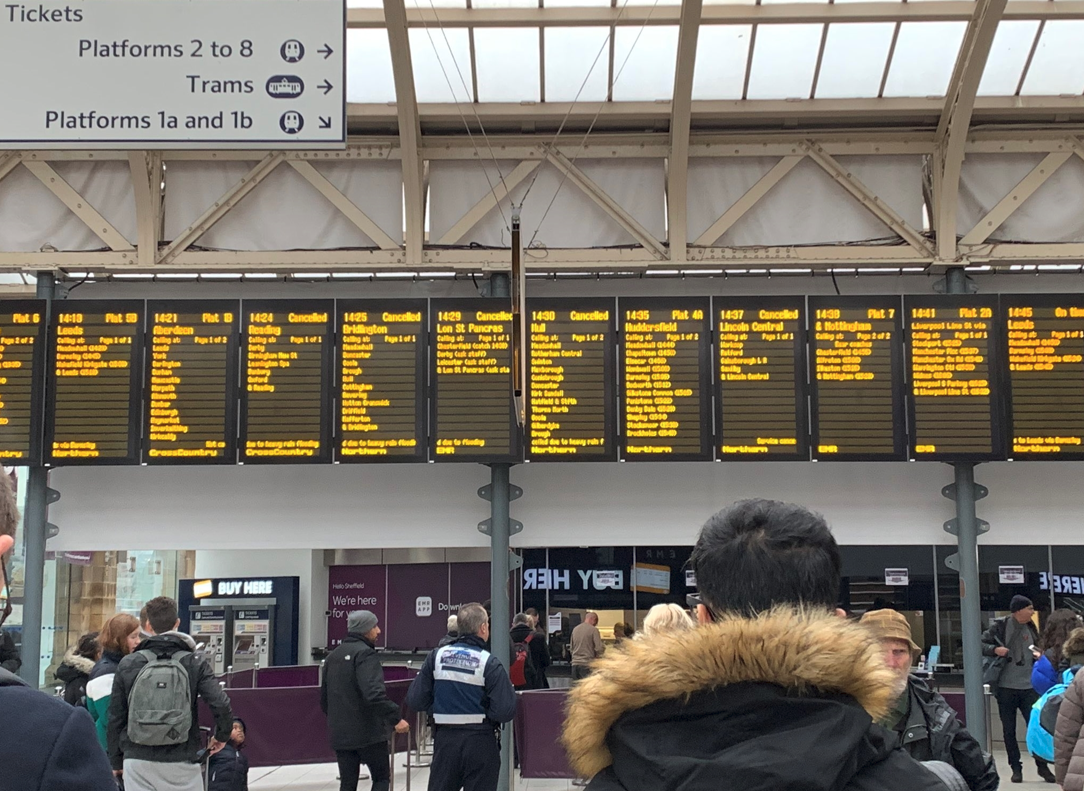
Severe flooding closes part of Yorkshire’s railways as Storm Franklin hits
Railways around Sheffield has been severely affected by the hitting storm Franklin since Sunday and multiple train line have been postponed.
High winds and heavy rain present a risk of further short notice disruption caused by debris such as trees being blown onto the tracks and flooding, according to East Midlands Railway’s official website.
Heavy rain has led to severe flooding across parts of South and West Yorkshire, including Rotherham, Doncaster, Kirkstall, Mirfield and parts of the Calder Valley line between Leeds and Manchester.
 Passengers travelled on 20th found themselves having to contend with delays, standstills and even cancellations.
Georgia, a 22 student, was planning to take the train from Sheffield to York at 17:10 20th, arrived at Doncaster around 17:25 and was told that there was a technical issue at Leeds station so she had to wait for more than an hour at Doncaster station until the bridges being fixed in Leeds.
“I was kind of scared as I was stuck in a strange place because of the weather and when the conductor on the train told us that hopefully we would set off "in the future", I felt the uncertainty and unsafety as I did not know how long I had to wait exactly.” Said Georgia.
Most passengers found it frustrating to stuck in some unfamiliar place and left to wait for broadcast, hope to get some good news, or in worse case, being sent back to their point of departure.
EMR and Northern strongly encourage customers to check their journeys before they travel, postpone their travel plan, and promise that their tickets for 21st will still be valid on the day next.
The disruption continues and all lines between Sheffield and Doncaster are still blocked today due to heavy rain flooding.
Bus replacement services are now in operation between Doncaster and Meadowhall to relieve the pressure caused by stalled passenger train services.
Passengers travelled on 20th found themselves having to contend with delays, standstills and even cancellations.
Georgia, a 22 student, was planning to take the train from Sheffield to York at 17:10 20th, arrived at Doncaster around 17:25 and was told that there was a technical issue at Leeds station so she had to wait for more than an hour at Doncaster station until the bridges being fixed in Leeds.
“I was kind of scared as I was stuck in a strange place because of the weather and when the conductor on the train told us that hopefully we would set off "in the future", I felt the uncertainty and unsafety as I did not know how long I had to wait exactly.” Said Georgia.
Most passengers found it frustrating to stuck in some unfamiliar place and left to wait for broadcast, hope to get some good news, or in worse case, being sent back to their point of departure.
EMR and Northern strongly encourage customers to check their journeys before they travel, postpone their travel plan, and promise that their tickets for 21st will still be valid on the day next.
The disruption continues and all lines between Sheffield and Doncaster are still blocked today due to heavy rain flooding.
Bus replacement services are now in operation between Doncaster and Meadowhall to relieve the pressure caused by stalled passenger train services.
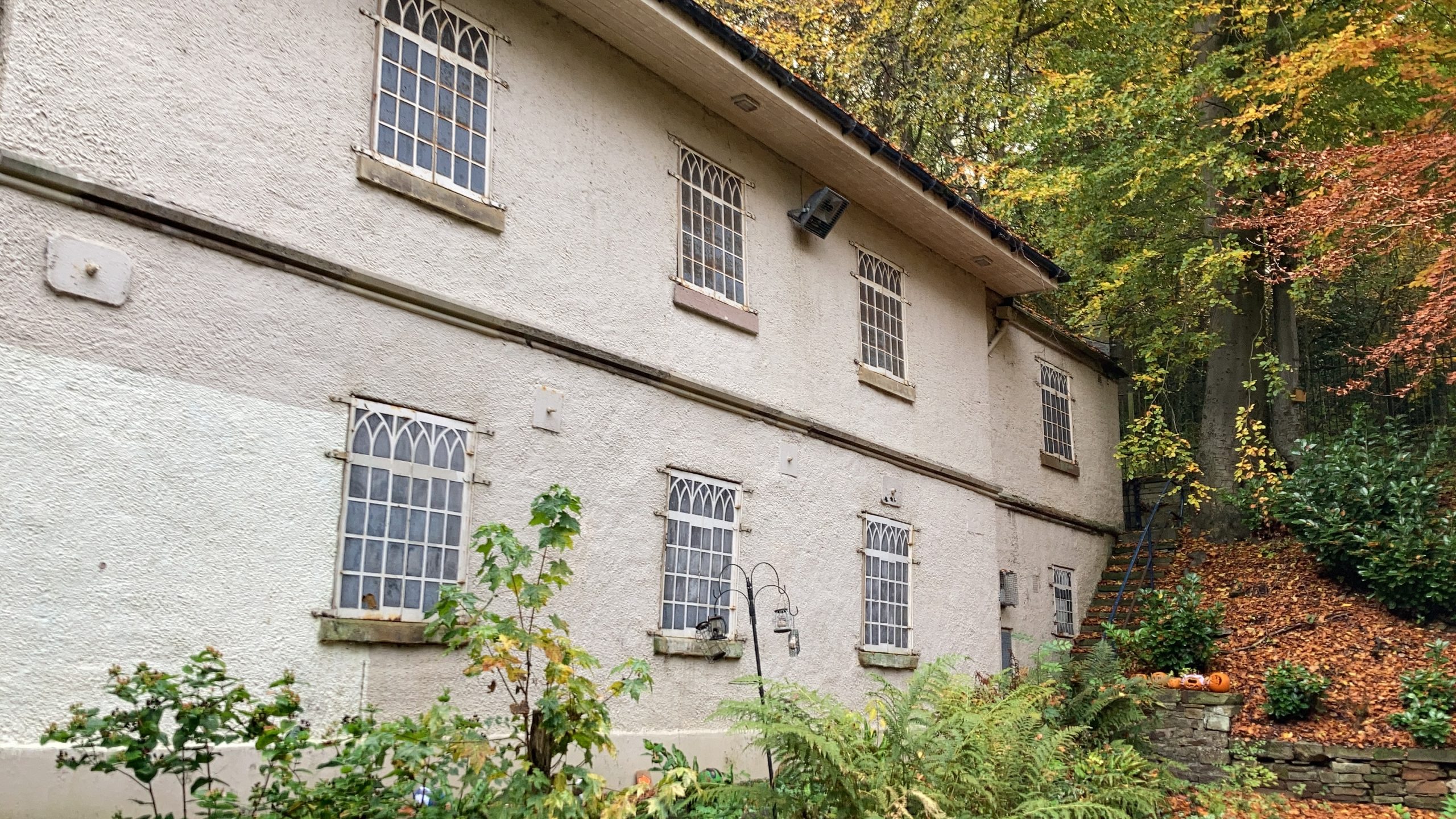
“Sheffield cannot afford to lose anymore of its historical heritage”: Community group continue to campaign to save Birley Spa Bath House
The Friends of Birley Spa House are campaigning to save Sheffield's only Victorian plunge pool. Birley Spa Bath House, on Birley Spa Lane, Hackenthorpe has fallen into disrepair and is under threat of being sold by Sheffield City Council. The Community led group are determined to restore the historical building and re-open it for public use. Fiona Milne, a member of Friends of Birley House Spa Group, said: "Birley Spa is a unique building. Saving it should be of national interest and at least be of city wide interest. "This place is part of the social history of Sheffield. There are so many layers to Birley Spa. There is the history, the nature, the education and the mental health and wellbeing aspects. Why are we having to argue to save this place?"

Birley Spa Bath House

Lorna Croker and family at the Birley Spa Christmas 2021 fundraiser.

Inside Birley Spa Bath House
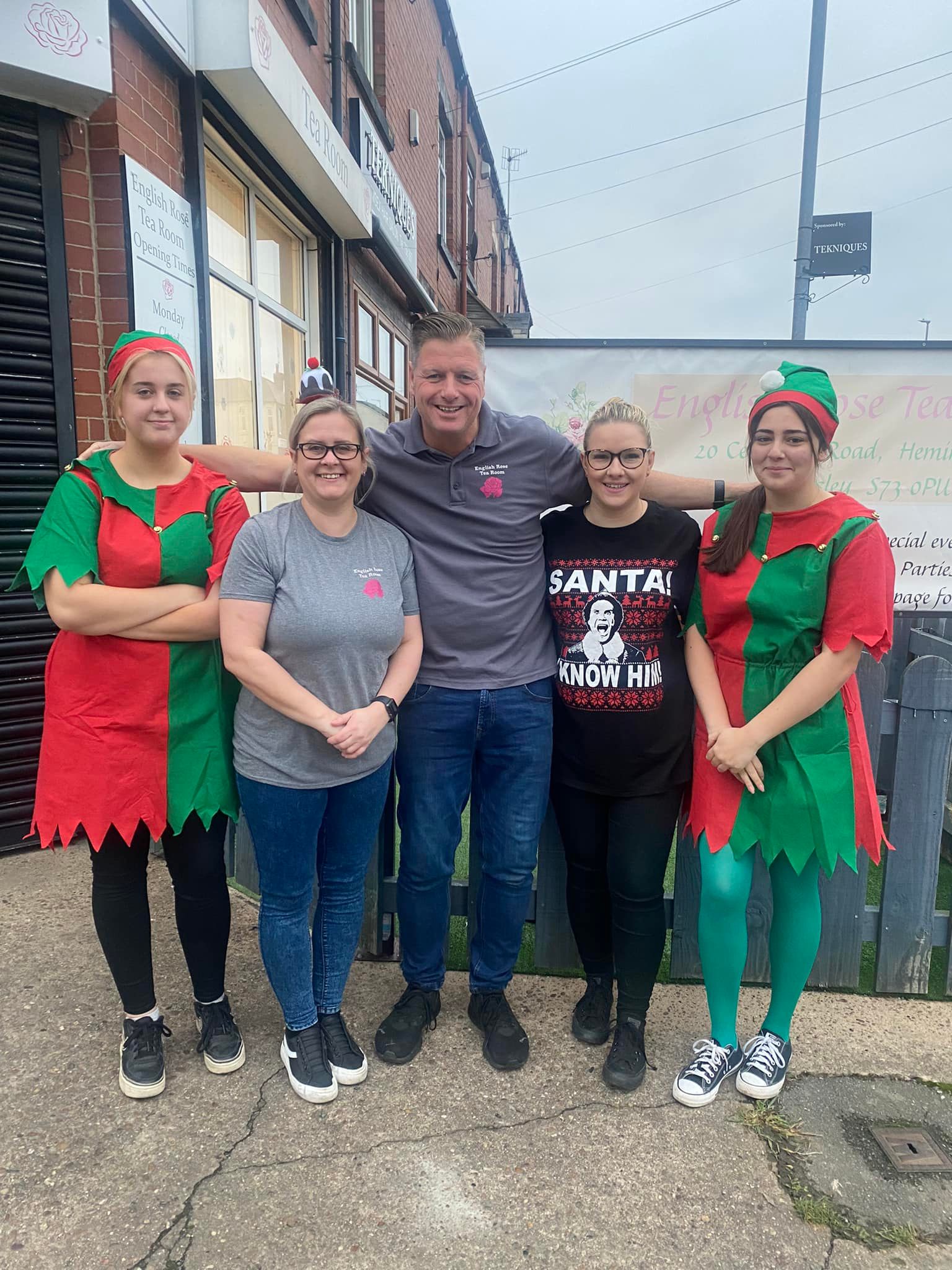
South Yorkshire café and tea room amongst the UK’s 20 most loved local businesses
A Barnsley tea room and Doncaster board game café have been voted two of the UK's most loved businesses out of 4,000 nominees.
The list was created by ShopAppy, an online service which aims to revamp the high street by allowing people to browse, book and buy from local businesses.
Bake Battle and Roll, a board game café in Doncaster and the English Rose Tea Room, Hemingfield beat businesses from 200 towns and cities across the UK to make the list.
Adrian Barnard, who owns the English Rose Tea Room just outside Barnsley, said: "It makes you feel amazing and really proud of what we do, and the enjoyment we give to people to keep them coming back.
"We're a family run business and this makes you feel prouder of that, like what you're doing is valued and worthwhile."
 This community spirit is key to the tea room, Mr Barnard said: "We've got a fantastic customer base and loyal customers. So massive thanks to them.
"We know our customers personally, you get to know them as friends as well as customers and they want your business to succeed."
After opening five years ago, their business has gone from strength to strength, opening their new Wombwell tea room opening in March.
This community spirit is key to the tea room, Mr Barnard said: "We've got a fantastic customer base and loyal customers. So massive thanks to them.
"We know our customers personally, you get to know them as friends as well as customers and they want your business to succeed."
After opening five years ago, their business has gone from strength to strength, opening their new Wombwell tea room opening in March.
 As well as the tea room, Mr Barnard's wife Suzie also runs a beauty salon above the café, so customers can enjoy a facial before their afternoon tea.
Another South Yorkshire husband and wife duo also made the list with Bake, Battle and Roll, a board game café in Doncaster.
Rachel Whitehouse, 30, and James Whitehouse, 41, said: "To win a spot in the top 20 was amazing. There's so many great businesses in town. It was really, really great."
As well as the tea room, Mr Barnard's wife Suzie also runs a beauty salon above the café, so customers can enjoy a facial before their afternoon tea.
Another South Yorkshire husband and wife duo also made the list with Bake, Battle and Roll, a board game café in Doncaster.
Rachel Whitehouse, 30, and James Whitehouse, 41, said: "To win a spot in the top 20 was amazing. There's so many great businesses in town. It was really, really great."
 The pair attribute their success to going the extra mile, community building and always striving for inclusivity.
According to Rachel, board games offer a unique opportunity to connect with your local community, she said: "I love the community feel of Doncaster in general. It's really nice to put your phones down for a bit and have a conversation over a board game.
"Everyone talks to everyone here which is really, really awesome."
After the café was forced to move online just a year after opening, the owners continued their business online, hosting Dungeons and Dragons games, quizzes and more.
The pair attribute their success to going the extra mile, community building and always striving for inclusivity.
According to Rachel, board games offer a unique opportunity to connect with your local community, she said: "I love the community feel of Doncaster in general. It's really nice to put your phones down for a bit and have a conversation over a board game.
"Everyone talks to everyone here which is really, really awesome."
After the café was forced to move online just a year after opening, the owners continued their business online, hosting Dungeons and Dragons games, quizzes and more.
 But Rachel and James missed the community they had built around the café. They told the Sheffield Wire: "If you want to buy a board game from Amazon, you go online and get them. But what you can't get is someone who will help you to play it, you can't get the community."
But Rachel and James missed the community they had built around the café. They told the Sheffield Wire: "If you want to buy a board game from Amazon, you go online and get them. But what you can't get is someone who will help you to play it, you can't get the community."
 As the pandemic eases, their business continues to grow, and will soon move to a bigger location on Cleveland Street, Doncaster.
These two South Yorkshire businesses were amongst 14 winners from Yorkshire and 4,000 nominations from all over the UK. If you would like to nominate a South Yorkshire business or find more small businesses near you, visit ShopAppy.
As the pandemic eases, their business continues to grow, and will soon move to a bigger location on Cleveland Street, Doncaster.
These two South Yorkshire businesses were amongst 14 winners from Yorkshire and 4,000 nominations from all over the UK. If you would like to nominate a South Yorkshire business or find more small businesses near you, visit ShopAppy.
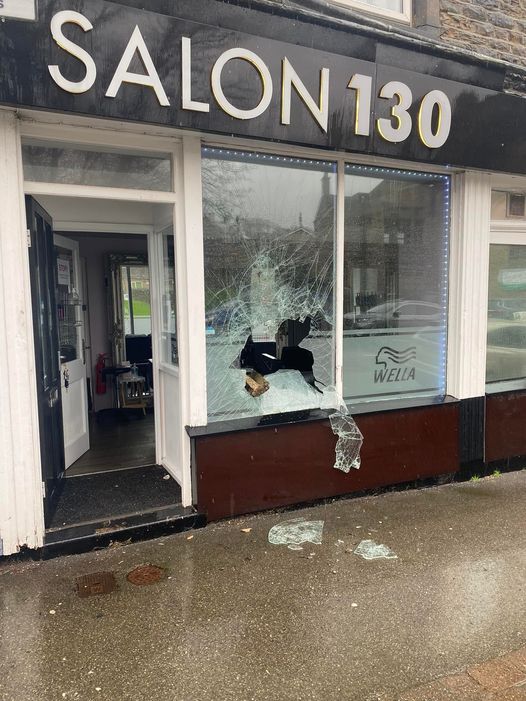
“It feels like a stab in the back”: Salon in Crookes left vandalised with smashed windows
A salon in Crookes had its windows smashed in on Saturday night, leaving the owner “sad and frustrated”.
According to CCTV footage, the incident occurred between 3am and 4am, when an unknown suspect threw concrete through Salon 130's window on Crookes High Street.
Lauren Adams, the owner of the salon said: “It feels like a stab in the back.
“We've gone through 10 months of being closed with Covid and now I feel like I need to plough money into the business when I haven’t got any and it shouldn’t be necessary.”
Following the damage, the community came together to support the local business.
Ms Adams said: “The community response was brilliant, even random people that I don’t know searched for the salon on Facebook and tried to contact me there to help.”
According to the owner, there was another attempt to gain entry to her salon a few nights ago, which failed. Despite the damage to the window on Saturday, no goods were taken, and there are no valuables left in the shop overnight.
Caroline Taylor, a senior stylist at the salon said: “It’s a lovely community and it’s so unusual to see such random acts of violence, we’re trying to build the business back up so it’s really quite sad and shocking.
“We want the other businesses to be aware and pull together as a community to act as a restraint against people who think they can behave like this.”
The police have been made aware of both attempted robberies, and the salon will be back open as normal from Wednesday.
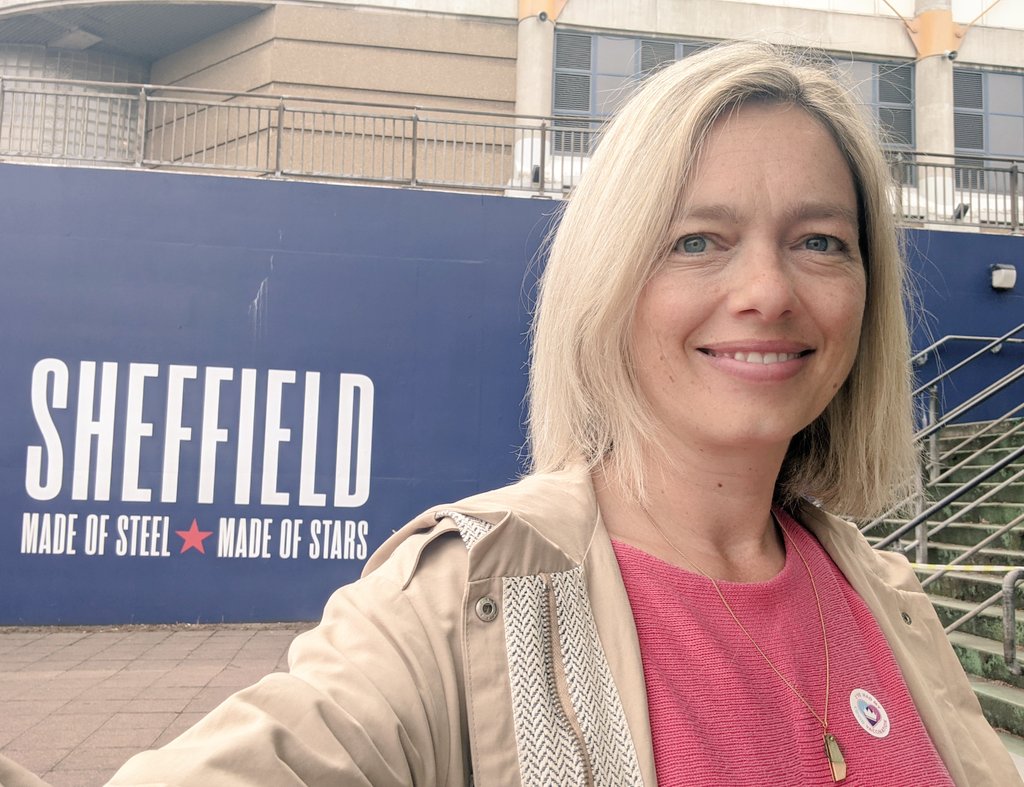
Sheffield Council says “you can trust us” as former Leader calls for Kate Josephs’ resignation
The Deputy Leader of Sheffield City Council has told Sheffield Wire the council can "very much be trusted" despite a budget crisis and an ongoing investigation into chief executive Kate Josephs. Cllr Julie Grocutt refused to say what the investigation into Ms Josephs, who admitted attending her own leaving party in the Cabinet Office in December 2020, is aiming to establish. The Labour councillor, who is also chairing the investigation, could not be drawn on how long the people of Sheffield will have to wait for an outcome. Ms Josephs was head of the COVID-19 taskforce during lockdown and is currently on paid leave from her £192,000-a-year role at Sheffield Council after apologising for her leaving party just minutes before The Daily Telegraph broke the news she was there.
When given the right to reply Kate Josephs did not respond. In the meantime, Eugene Walker, executive director of resources, will now take up the role of interim chief executive at Sheffield City Council. Cllr Grocutt said: "Eugene has been around a long time, he knows Sheffield well, he knows the council well. He's ideally placed to take over at this point in time."I am today making a statement. I am truly sorry. pic.twitter.com/xWByiiKfV3
— Kate Josephs (@katejosephs) January 14, 2022

Above: Lord Scriven
But Lord Scriven, who was Leader of Sheffield City Council for three years until 2011, said the Council is now in the "ridiculous situation" of having two chief executives. Lord Scriven said: "This is expensive confusion and it shows a lack of serious leadership by the Leader and Deputy Leader of the council." He pointed out Ms Josephs could still have full access to her e-mails and could still send letters out as the chief executive of Sheffield City Council as she has not been suspended.The Liberal Democrat called for Kate Josephs to resign, saying she does not have the "moral authority to be the chief executive". With council tax rising for all residents in Sheffield by three percent - the maximum legal amount possible - the issue of whether people in the city have confidence in the council hangs in the balance. Cllr Grocutt said: "People who don't trust the council actually need to take a step back and look at what we're doing and what we've managed to do over a number of years with reduced budgeting and the fact that as a city, we've never lost our ambition."Former Leader of Sheffield City Council @Paulscriven says Kate Josephs should be suspended from her £192,000-a-year role pic.twitter.com/n1XiqClRHK
— Sheffield Wire (@Sheffield_Wire) February 21, 2022
She urged anyone struggling to pay their council tax to contact their local councillor for support and blamed the rise on the government cutting council spending by 21% over the past decade. The council's priorities for the year head, Cllr Grocutt said, are keeping people safe and "making the most of the outdoors" by maintaining parks and open spaces.Deputy Leader of Sheffield City Council talks about @SheffCouncil's record pic.twitter.com/aOshPP3gvf
— Sheffield Wire (@Sheffield_Wire) February 21, 2022
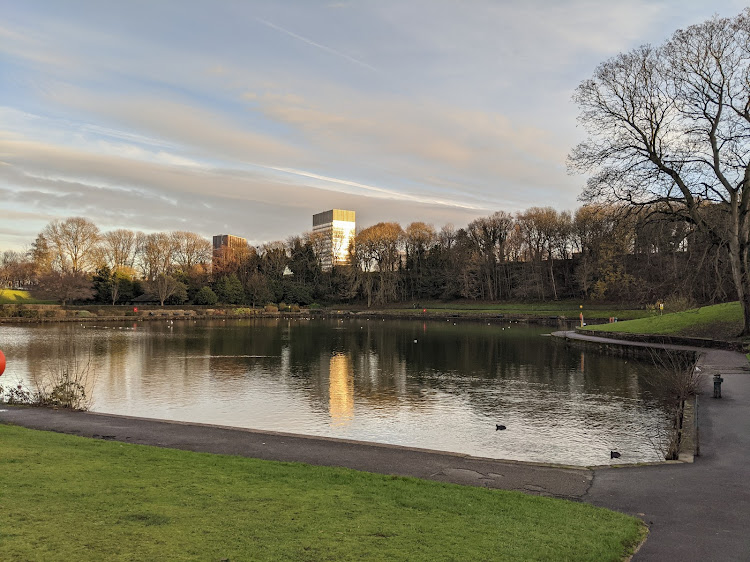
‘Scared’, ‘Intimidated’, and ‘Unsafe’ to use Crookes Valley Park
An online petition has been launched to push Sheffield council to install better pathway lighting on Crookes Valley Park, where many people described their experience as "scared", "intimidated", and "unsafe" while accessing the venue. This unlit park is recognised as a serious risk of sexual violence and drownings for the many who use the green space in the dark. Amelia Hancock, 21, the founder of petition of Light Crookes Valley Park Up said: “COVID-19 has taught everybody to make use of our local green spaces. Crookes Valley Park is a precious space that is enjoyed by the local community. “However, encouraging even greater use of the park while not investing in safety measures is negligent and irresponsible at best, callous at worst.” A sexual assault was reported at Weston Park in which a 21-year-old victim woke up without memory in 2017, which led to a similar online petition urging Sheffield Council to install additional lighting. While some lights were achieved at Weston Park, adjacent Crookes Valley Park remains unlit. Date from Police UK showcases there were six recorded violent crimes from January to October 2021. In early 2021, Our Bodies Our Streets gathered over 3,000 signatures on a petition with a series of demands to Sheffield Council. They demanded better lighting in parks to help women and minority groups feel safer. Despite the 5,600 signatures the petition has now, moving presentations given to the council and a well-run campaign, responsibility was waived. Ms Hancock said path lighting serves as a crime deterrent to enhance the chances that an offender will be noticed by a witness and so recognised, but the concrete process was frustrating. She said: “Undoubtedly, wider change is required to erase the issue of violent attacks, but the council has the opportunity to quite literally provide light in future situations and perhaps even prevent them. "In fact, the concrete was not broken at all with not a single light installed.” It is believed going through the park is the most convenient way home for students who study at Western Bank Library and the Information Commons. Additionally, the park is incredibly important for those attending Sheffield Children's Hospital or Royal Hallamshire Hospital as staff and patients. Ms Hancock said: “Our well-used park cannot be an afterthought, we cannot wait for the next horrifying publicised incident to try to scare our representatives into action. The city council is yet to respond.

Return of Sheffield Music Trails announced in lifeline to local venues
A free music festival is returning to Sheffield after last year’s originally one-off event was a “massive success” in helping independent music venues recover from Covid. Sheffield Music Trails is a day of free live music in a walkable trail across 19 venues on 2 April. The event is organised by The Leadmill with the South Yorkshire Mayoral Combined Authority and Sheffield City Council. Ben Hartley, live promoter at The Leadmill, said: "It's a wonderful advertisement that we're all back in business. Customer confidence is definitely returning and with the event being free entry it's the perfect excuse for music lovers to get out and visit these venues." https://youtu.be/ioRJ5fTPNOc Additional footage from The Leadmill of 2021 Sheffield Music Trails Ben said: "This whole project started out because we've been given so much support from both the council and customers that had visited our venue over the last 4 decades, and put us in a strong position to be able to extend a hand to other excellent venues in the city." Independent music venue and bar Sidney&Matilda, like many, struggled during the pandemic with closures and 'lockdowns by stealth', when people were warned against going to crowded places such as bars and nightclubs. Ollie Parker, Events and Bookings Manager at Sidney&Matilda, said of last year's event: "It was a massive success, we had around 200 people and the bar filled up." He said the event encouraged more people to check out new venues and participate in Sheffield's grassroots music scene. A year on, the impact of the Omicron variant in December has put further pressure on venues, as customers were wary to head out during what would normally be a busy period. He said: "Because the pandemic was a real struggle for music venues, just having an event where all the venues are working together is a way of being united against the adversity the industry has experienced." The funding comes in part from the £1 million funding allocated from Additional Restrictions Grants from the South Yorkshire Mayoral Combined Authority (SYMCA). Kate Brindley, Project Director for Arts, Culture & Heritage for SYMCA, said: “Music is a huge part of Sheffield cultural makeup, with a proud and storied history of producing some of the country’s most loved musical talent. "South Yorkshire’s MCA is passionate about supporting arts, culture and heritage, and aiding it’s recovery from the pandemic as one of the hardest hit sectors."
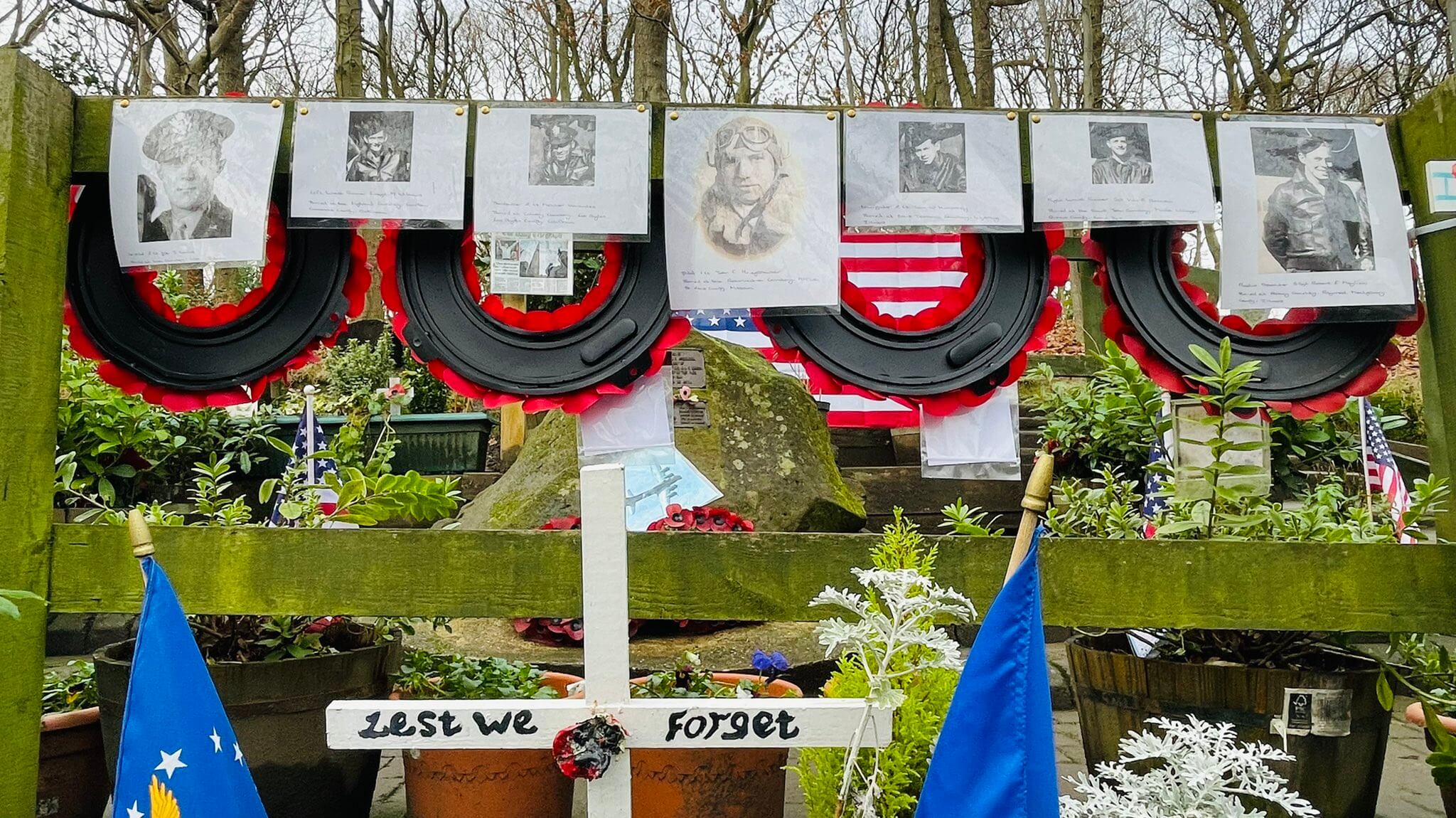
The heroes of Endcliffe Park: 78 years on from the Mi Amigo plane crash
After two years of COVID restrictions and further postponements due to the weather over the weekend, a memorial service in honour of the Mi Amigo plane crash victims took place at St Augustine's Church at Brocco Bank yesterday. 22 February will mark 78 years since a US B-17 aircraft called 'Mi Amigo' crashed in an area of woodland adjacent to Endcliffe Park due to engine failure during World War II. The plane's pilot, John Kriegshauser, was able to divert the aircraft away from a group of children playing in the park as it crashed into a forest nearby. All ten members of the US air crew on board the plane perished in the crash. Pilot Kriegshauser was posthumously awarded the Distinguished Flying Cross for the courage he showed to sacrifice his crew in order to prevent the further loss of life in the park. Unfortunately, the RAF were forced to cancel this year's official remembrance ceremony at the Mi Amigo memorial at Endcliffe Park as a result of the ongoing adverse weather.

The Mi Amigo plane crash memorial in Endcliffe Park is kept in great condition by local resident Tony Foulds.

Doncaster Knights snatch win from Hartpury
The Doncaster Knights were victorious against Hartpury 11-10 at the weekend. The tough match was worsened by weather conditions at Castle Park. Whilst Doncaster dominated the first half, Hartpury reeled it back in the second half, scoring 10-8. The Knights then seized back the game, with Sam Olver scoring a penalty at the death, in a thrilling turn of events. He said: “I think throughout the season we’ve had tight games, we’ve come to a lot of them, and it does bring you closer together, so hopefully leading into the next three games, it puts us in a good position.” The South Yorkshire team will now move onto one of their most important matches, against Ealing next weekend. They fear the latter will have a better side, will therefore need to up their game to secure a win. The Knights have three more points than Ealing, and also have the advantage of two more games. Steve Boden, Head Coach of the Doncaster Knights, said: “We’ve got to go to Ealing next week which is going to be a ridiculously hard fixture. I think they’re a brilliant side, so we’ve got that to work on. We’ve got to run ourselves up and get ready for a huge challenge at the weekend."
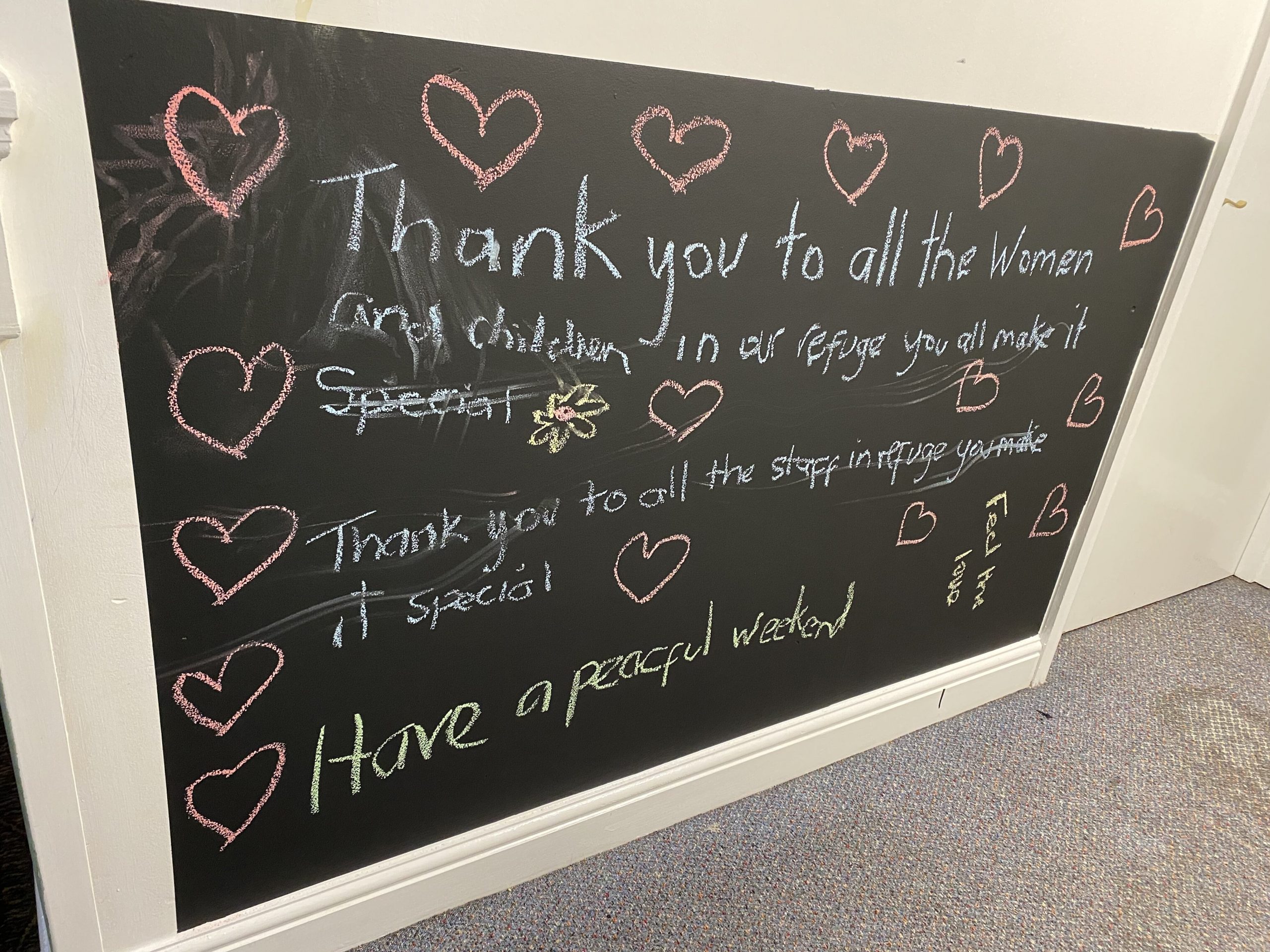
Sheffield domestic abuse services to receive extra support through the levelling up fund
A national support fund of £125 million has been announced by the government to support domestic abuse victims. Hollie Venn, CEO of Women’s Aid Sheffield is delighted that Sheffield City Council have been allocated around £1.3 million of the money. This provision of these services is vital for the wellbeing of women and children, Ms Venn added: “it gives them a safe space to be able to cope and a period of reflection, and a safe space to be able to recover from the trauma.”

Thought board in the women's refuge

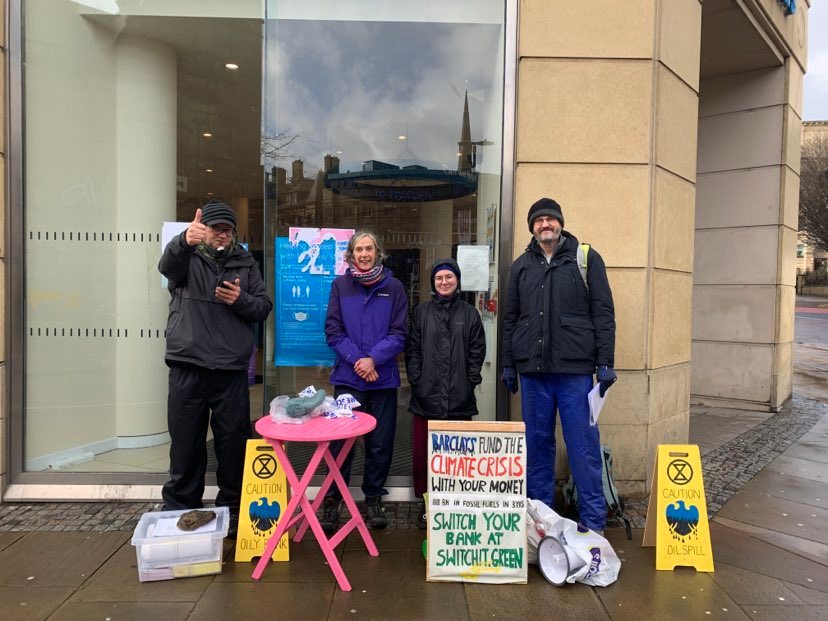
 XR Sheffield and XR Youth Sheffield are planning a series of actions outside the bank's branch at Pinstone Street, Sheffield, from 21 February to 26 February, including street talks and theatre performances.
Graham Rowe, 62, member of XR Sheffield said: "Climate change is an absolute nightmare, we've seen it this weekend, this is what climate change means.
"It means increasingly worse storms, it means droughts, it means food shortages because farmers aren’t going to be able to grow their crops anymore. It's got to stop."
When speaking about Barclays specifically, Mr Rowe said the bank needs to switch to renewable energy and help people to insulate their homes and invest their money sensibly, rather than investing in a "nightmare future."
XR Sheffield and XR Youth Sheffield are planning a series of actions outside the bank's branch at Pinstone Street, Sheffield, from 21 February to 26 February, including street talks and theatre performances.
Graham Rowe, 62, member of XR Sheffield said: "Climate change is an absolute nightmare, we've seen it this weekend, this is what climate change means.
"It means increasingly worse storms, it means droughts, it means food shortages because farmers aren’t going to be able to grow their crops anymore. It's got to stop."
When speaking about Barclays specifically, Mr Rowe said the bank needs to switch to renewable energy and help people to insulate their homes and invest their money sensibly, rather than investing in a "nightmare future."
 The recent
The recent